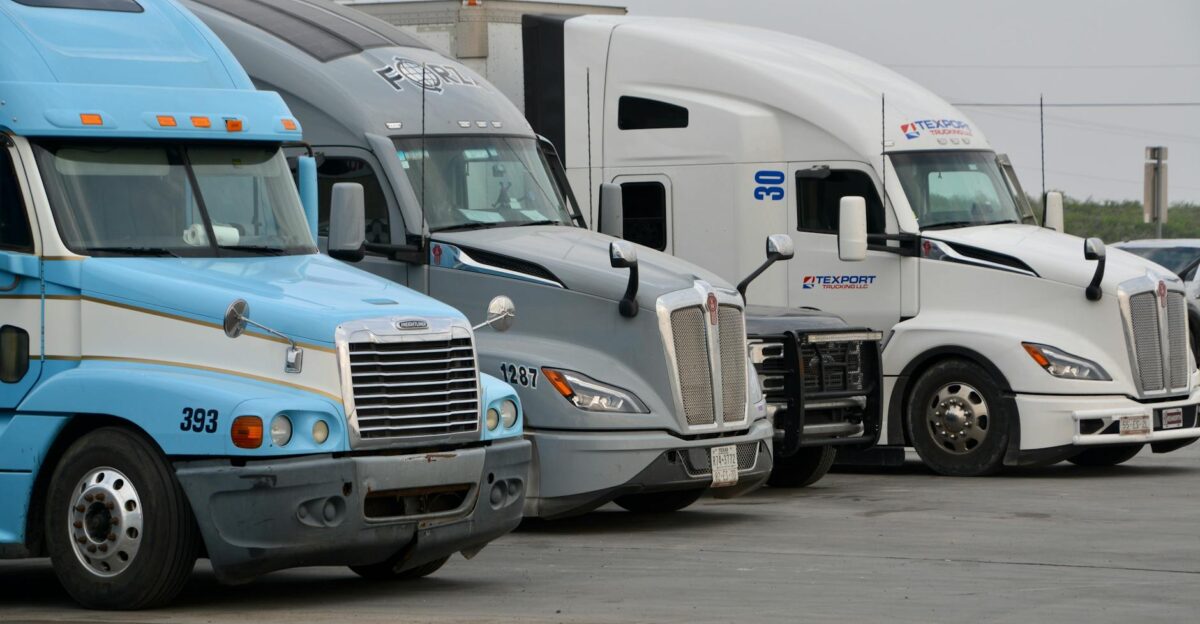
A venture-backed transportation company built on artificial intelligence faced an existential crisis when a mystery supplier terminated its contract on October 31, 2025. Three days later, the board voted to downsize. By November 7, the operation had collapsed: 56 employees were laid off, the fleet was halved, and Texas operations were shut down.
The compressed timeline—from decision to completion in just 72 hours—ranks among the fastest mass layoffs in Austin’s tech and transportation history.
What Could Topple a Tech Darling Backed by Venture Giants?

The company raised $21 million in Series A funding in December 2021, led by Obvious Ventures. Just months after closing a $16.6 million Series B round in September 2024, executives were publicly optimistic about growth. The startup positioned itself as the future of trucking through proprietary algorithms designed to cut costs by 20% and improve asset utilization by 50%.
Yet one supplier termination unraveled the entire operation, raising uncomfortable questions about the fragility of startups and whether technology can truly insulate companies from market collapse.
From 200 Trucks to 100—A Fleet Halved in Four Months

In mid-summer 2025, the company operated approximately 200 trucks across North America, with leadership confident about expansion. By early November, that fleet had shrunk to roughly 180 trucks as market conditions deteriorated. After layoffs, operational capacity plummeted to approximately 100 trucks or fewer—a devastating 50% reduction.
The company leased all trucks rather than owning them, offering theoretical flexibility during downturns but proving insufficient when labor costs needed to contract overnight.
The Freight Recession Nobody Expected to Be This Bad

The trucking industry entered 2025 gripped by the “Great Freight Recession”—the most prolonged downturn in trucking history. Freight volumes fell 18% year-over-year through mid-2025, reaching pandemic-era lows.
The industry is drowning in overcapacity, with more than 310,000 trucks flooding the market since 2019, crushing margins and pricing power.
Austin’s Ambitious AI Trucking Startup

Founded in 2020 in New York and relocated to Austin in 2021, AI Fleet Inc. operated from its headquarters at 200 E. Sixth Street with a truck yard in Hutto. CEO Marc El Khoury, a former Chief Strategy Officer at US Xpress, co-founded the company alongside Mark Farkas, who led AI development.
The company’s proprietary algorithms claimed to optimize routes, driver scheduling, load assignment, and fuel efficiency—processing “20 quintillion permutations per truck per week.” By November 5, 2025, the company had filed a WARN Act notice confirming permanent layoffs of 56 employees.
The Mystery Supplier That Nobody Will Name

On October 31, 2025, a “key supplier” terminated its contract with AI Fleet. The company has refused to identify the supplier. Was it a fuel provider pulling credit terms? A truck-leasing company recalling vehicles? A critical software vendor shutting down access?
In a November 5 letter filed with regulators, CEO Marc El Khoury stated: “This event occurred too recently and too unexpectedly for us to provide the 60-day notice that the WARN Act ordinarily requires.”
Board Decision Made in 48 Hours—Permanent Layoffs Announced Days Later

On November 2, 2025—just three days after the supplier termination—AI Fleet’s board voted to downsize its operations permanently. The decision moved with startling speed from crisis to resolution. No negotiation, no attempt to secure bridge financing, no alternative arrangements announced.
Layoffs began on November 4 and concluded by November 7—a 72-hour execution window. All affected positions were classified as permanent; employees could not transfer to other roles within the company.
The WARN Act Loophole

Federal law requires employers with 100 or more full-time employees to provide 60 days’ written notice before mass layoffs affecting 50 or more workers. AI Fleet invoked the “unforeseeable business circumstances” exception, which allows employers to bypass standard notice periods if they demonstrate a sudden, unexpected business event beyond their control.
AI Fleet’s invocation meant that no federal penalty would be incurred for lack of notice, although individual employees may still retain potential claims for back pay and benefits.
56 Jobs Gone, 100 Family Members Blindsided, Zero Severance Announced

The layoffs directly affected 56 Texas-based employees, with additional cuts in other regions resulting in a total job loss of approximately 100 people across all operations. Drivers and office workers, many of whom had committed to AI Fleet based on promises of better pay and stable home time, found themselves unemployed with no warning.
The timing was catastrophically brutal: layoffs occurred during the worst freight market in years, with spot rates at multi-year lows and hiring effectively frozen across most carriers.
Can $50 Million in Venture Capital Prevent Startup Collapse?

AI Fleet raised approximately $51.6 million across two major funding rounds. The December 2021 Series A of $21 million was led by Obvious Ventures and included Compound, Ibex Investors, and angel investor Tom Williams. The September 2024 Series B of $16.6 million added Volvo Group Venture Capital as a strategic backer.
Yet, the entire capital structure proved insufficient to weather a single supplier relationship fracture, combined with an industry-wide freight recession.
The AI Advantage That Wasn’t

AI Fleet’s competitive positioning was based on bold claims: proprietary algorithms could reduce the cost per mile by 20% compared to the industry average and achieve 50% higher asset utilization than comparable fleets. The company claimed to optimize every variable simultaneously—route planning, driver scheduling, load assignment, and fuel efficiency—through machine learning models that process massive data volumes.
Yet these technological advantages evaporated when the freight market collapsed, and a single supplier severed its contract.
From Startup Darling to Cautionary Tale

AI Fleet’s trajectory inverted the typical venture-backed success narrative. The company attracted engineering talent, secured backing from prestigious venture firms, moved to Austin, and positioned itself as the vanguard of AI-driven trucking transformation.
Yet, within five years of founding—and just months after a successful Series B fundraising round—the company faced an existential collapse triggered by the loss of a single supplier.
When Technology Meets Market Reality

AI Fleet’s collapse symbolizes a broader turning point in the trucking industry. The industry is experiencing systemic overcapacity that technology cannot overcome. More than 310,000 trucks have flooded the market since 2019, creating a structural oversupply that algorithms cannot optimize away.
Spot rates sit at multi-year lows. Contract freight volumes are declining for the first time in years, suggesting even supposedly stable revenue streams are eroding.
Board Decision Speed Raises Questions About Pre-Crisis Cash Position

The board’s decision to downsize operations occurred within three days of the supplier termination, suggesting either extreme crisis management or a pre-existing contingency plan. Companies typically explore alternatives—such as negotiated settlements, emergency bridge financing, and operational restructuring—before choosing permanent downsizing. AI Fleet skipped those steps.
The speed of the decision implies either that alternatives were genuinely unavailable or that the company’s cash position had already been deteriorating before October 31.
The WARN Act Exception as Precedent

AI Fleet’s successful invocation of the “unforeseeable business circumstances” WARN Act exemption may establish a precedent that encourages other employers to classify disruptions as force majeure events, thereby potentially limiting their liability. Other struggling companies facing freight recession pressures may now cite AI Fleet’s example and argue that market collapse or supplier loss qualifies as unforeseeable circumstances.
If regulators or courts accept this expansion, WARN Act protections erode further, shifting risk from employers to workers. The bar for “unforeseeable circumstances” may have been lowered.
100 Families Face Brutal Freight Market Realities

The human cost extends beyond the 56 direct layoffs to approximately 100 family members, depending on the employment status of AI Fleet personnel. Drivers, dispatchers, logistics coordinators, and administrative staff suddenly lost income with zero advance notice.
The timing could not have been worse: spot market rates are at multi-year lows, freight volumes are declining, and hiring across the industry has effectively come to a standstill.
AI That Claims to “Humanize Trucking”

AI Fleet’s brand identity centered on humanizing trucking through technology. The company positioned itself as different from brutal, efficiency-obsessed mega-carriers: drivers would have predictable home time, fair pay, and algorithmic optimization that served driver needs.
Yet the November layoffs—executed within 72 hours, offering no severance, providing no transition support—inverted that narrative.
Volvo, Obvious Ventures, and Other Backers Face Material Capital Loss

Venture investors backing AI Fleet face significant losses on their stakes. Volvo Group Venture Capital, participating as a strategic backer in the Series B round, likely saw material value destruction. Obvious Ventures, which led both Series A and Series B funding rounds, has substantial capital at risk. Ibex Investors, Compound, Heron Rock Fund, Winthrop Square, and angel investor Tom Williams similarly face equity dilution.
A company that raised $51.6 million and was positioned as a future leader in the trucking industry has now downsized to roughly half its operating capacity.
Can AI Save the Industry, or Does It Accelerate Consolidation?

AI Fleet’s implosion reignites fundamental debates about the role of technology in transportation. Proponents argue the failure reflects startup fragility rather than AI flaws; the company’s technology may have been sound, but venture-backed carriers are inherently vulnerable during severe downturns. Critics counter that AI Fleet’s demise proves technology cannot overcome structural economic forces.
As autonomous trucking trials continue on Interstate 35 and other corridors, AI Fleet’s collapse raises uncomfortable questions: Will AI-driven optimization solve trucking’s overcapacity problem, or accelerate consolidation?
The Mystery Supplier Remains Unnamed, Questions Unanswered

Weeks after the layoffs, AI Fleet has not disclosed the identity of the supplier whose contract, terminated on October 31, triggered the operational collapse. The refusal to name the supplier perpetuates opacity and raises suspicions about the company’s operational transparency and risk management.
If a single supplier relationship was essential enough that its loss toppled the entire operation, how was that risk not managed, diversified, or contractually protected?
The Fastest Collapse in Austin’s Recent Tech History

AI Fleet’s November 2025 implosion ranks among the most compressed and dramatic collapses in Austin’s recent technology and transportation history, as the period from board decision to layoff completion was just 72 hours.
For founders, employees, and investors in similar startups, AI Fleet became a visceral reminder of the fragility of startups: capital is not a guarantee of protection.